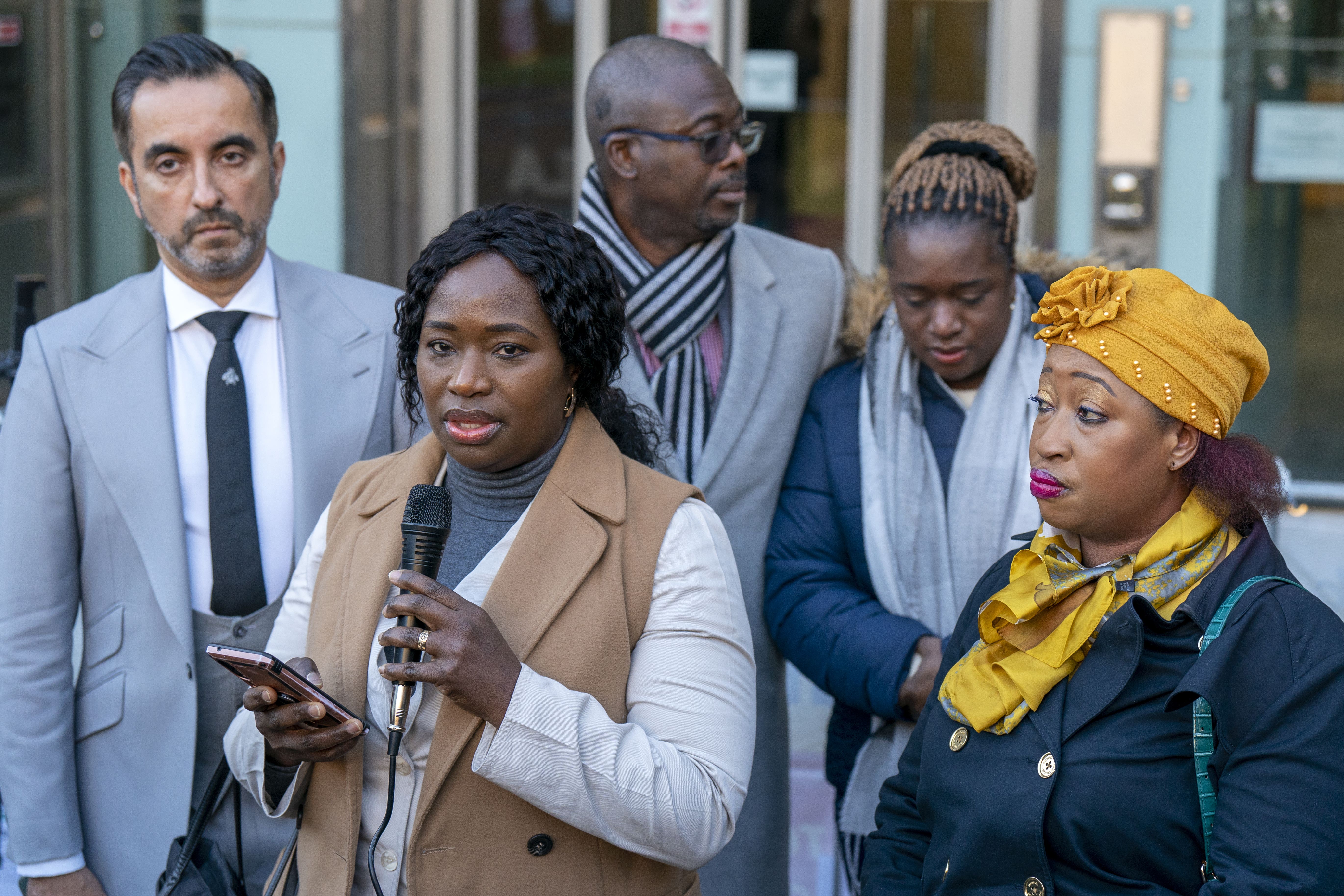Sister tells vigil of racist abuse as Sheku Bayoh death inquiry resumes
Kadi Johnson thanked people for their support.

Your support helps us to tell the story
From reproductive rights to climate change to Big Tech, The Independent is on the ground when the story is developing. Whether it's investigating the financials of Elon Musk's pro-Trump PAC or producing our latest documentary, 'The A Word', which shines a light on the American women fighting for reproductive rights, we know how important it is to parse out the facts from the messaging.
At such a critical moment in US history, we need reporters on the ground. Your donation allows us to keep sending journalists to speak to both sides of the story.
The Independent is trusted by Americans across the entire political spectrum. And unlike many other quality news outlets, we choose not to lock Americans out of our reporting and analysis with paywalls. We believe quality journalism should be available to everyone, paid for by those who can afford it.
Your support makes all the difference.The sister of a man who died after being restrained by police officers has said she received racist abuse the evening before an inquiry into his death resumes.
Sheku Bayoh died after he was restrained on the ground by six police officers responding to a call in Kirkcaldy, Fife, in May 2015.
Speaking to a vigil outside Capital House in Edinburgh, where the inquiry enters its second stage before Lord Bracadale on Tuesday, his sister Kadi Johnson said she believed Mr Bayoh would still be alive had he not come into contact with the police.
About 100 campaigners from trade unions across Scotland stood outside the building on Wednesday morning showing their solidarity with the Bayoh family, joined by the family’s lawyer, Aamer Anwar.
Ms Johnson said: “Thank you very much for being here today, standing in solidarity with me and my family. I have been asked if Sheku had not come across the police will he be alive today? Well, I believe he would be.
“I have asked the inquiry to please tell me how and why my brother had to die in the custody of the police, but seven years on we are still waiting for the answers, so far all we got were lies.
“It has been a tough journey and along the way we have faced a lot of disappointment as well as racist abusive messages, even up to last night I had racist messages sent to me, but we welcome a meeting with Lord Bracadale yesterday and his condemnation of the racist abuse to our family and threats made to our lawyer.
“We are in for a long haul with the inquiry and your support gives me the strength and the courage to keep pressing on till justice prevails. Once again, thank you very much for your continual support.
“Unity is power, justice for Sheku Bayoh.”
Lord Bracadale told the inquiry he strongly condemns the racist abuse the Bayoh family has experienced and said he “calls for it to cease”.
He told the inquiry hearing on Tuesday morning that in some instances, the abuse constituted “a hate crime”.
The public inquiry investigating the circumstances after Mr Bayoh’s death and whether race was a factor begins its second stage before Lord Bracadale on Tuesday.
As Mr Anwar detailed Mr Bayoh’s injuries and the circumstances he was restrained under, his sister, Adama Jalloh, was overcome with emotion and began crying.
The vigil began shortly before 9am with a choir and chants of “Black Lives Matter” and “From Minnesota to Kirkcaldy, Black Lives Matter”.
Mr Bayoh, a trainee gas engineer and father of two, was born in Sierra Leone and moved to the country when he was 12.
After living in London for five years, he then moved to Scotland.
The inquiry has previously heard from the officers involved in the restraint of Mr Bayoh in Hayfield Road, as well as witnesses to the events on May 3, and others connected with the incident including control-room staff and other emergency service workers.
On Tuesday it will hear from Inspector James Young, ahead of further witnesses this week, as it works to establish the facts of the immediate circumstances leading up to his death, how the police dealt with the aftermath, the following investigation, and whether race was a factor.